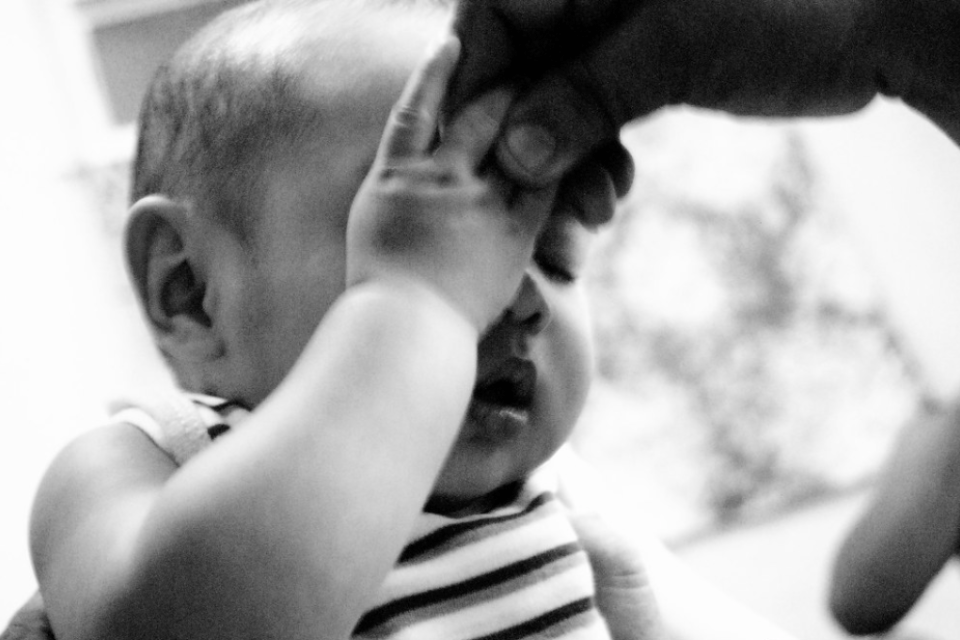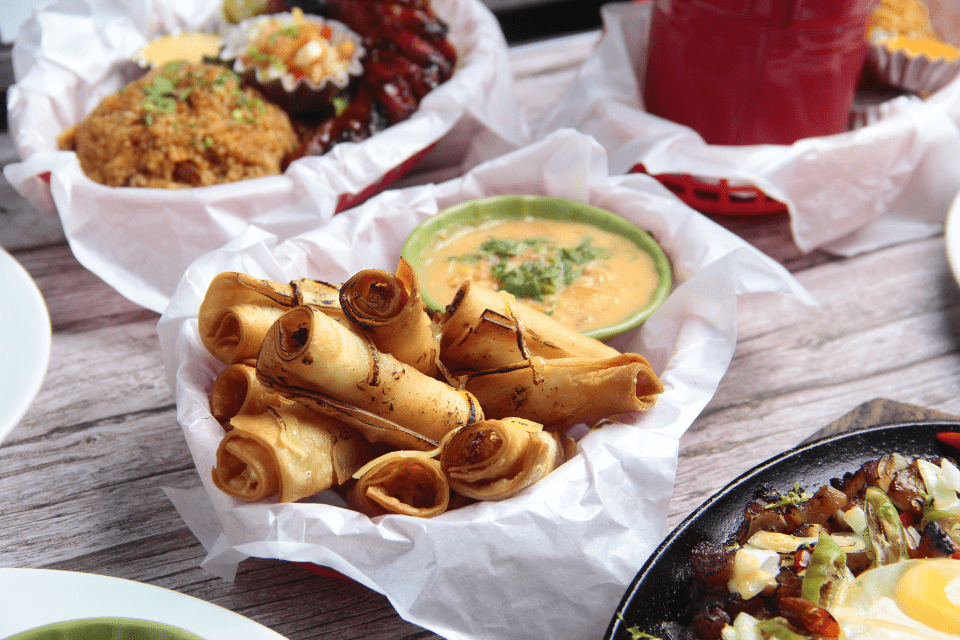Gaining insights into Filipino dating practices is crucial for anyone interested in building connections with Filipinos or immersing themselves in the vibrant Filipino society. In the Philippines, dating is a fascinating blend of traditional values, influence from Western culture, and modern perspectives. This article aims to provide a comprehensive overview of Filipino dating customs, rituals, and expectations.
The Significance of Family and Traditional Values in Filipino Dating Culture
Family is an integral part of Filipino society, and its influence extends to dating and relationships. The Filipino dating culture places great importance on seeking the approval and blessings of one’s family before entering into a romantic relationship. This practice stems from Filipino culture’s strong emphasis on filial piety and respect for parents and elders.
In the Philippines, it is customary for individuals to involve their families early on in the process of courtship. Before pursuing a romantic relationship, Filipinos often introduce their potential partner to their family members. This introduction serves as an opportunity for the couple to receive the family’s assessment and approval. The opinions and perspectives of parents and elders are highly valued, as their wisdom and guidance are crucial in making important life decisions, including choosing a life partner.
During family gatherings, special occasions, or visits, the couple may have the chance to spend time with each other’s families. These gatherings allow the couple to get acquainted within the context of their respective families. It will enable the families to observe the couple’s compatibility, character, and intentions. Family gatherings create an atmosphere of support and inclusivity, fostering a sense of belonging for the individual and their partner.
The involvement of families in the dating process is more expansive than mere approval. It also signifies the merging of two families and the recognition of the couple’s commitment to building a future together. It is common for families to share advice, offer guidance, and impart wisdom to the couple, ensuring that they enter into a relationship with a strong foundation of familial support.
Respect for parents and elders is deeply ingrained in Filipino culture, and this respect extends to choosing a partner. The couple must revere and consider their families’ opinions and preferences. While the final decision ultimately lies with the individual, their family’s approval shapes their choices.
The involvement of families in Filipino dating culture reflects the strong emphasis on familial ties, respect, and the desire for harmonious relationships. By seeking the approval and blessings of their families, Filipinos honor their cultural values and traditions while ensuring that their romantic relationships are built on a solid foundation of family support and acceptance.

“Harana”: Serenading as a Time-Honored Filipino Dating Tradition
“Harana” is a traditional Filipino practice that involves serenading someone to express romantic interest or affection. In the past, harana was a famous courtship gesture where a suitor would visit the home of the person they admired and sing love songs beneath their window. This act was accompanied by strumming a guitar or other musical instruments, creating a romantic ambiance.
While the traditional form of harana may be less common in modern times, its essence and spirit still exist in various ways. Here are a few aspects of modern-day harana:
- Musical Performances: Serenading someone with a heartfelt song remains a cherished gesture. It could be a surprise performance during a special occasion, such as a birthday or anniversary, or a planned event where a person hires a musician or a band to serenade their partner.
- Online Serenades: With the rise of social media and technology, serenading has adapted to the digital age. It is now possible to send recorded or live video serenades to someone, especially when distance or circumstances prevent a physical presence. This modern form of harana allows individuals to express their feelings through music, even across long distances.
- Personalized Songs: Another modern twist on harana is the creation of customized songs. People may write and perform original compositions or modify existing pieces to reflect their feelings and sentiments for their loved ones, adding a unique and personal touch to the serenade and making it even more meaningful.
- Surprise Performances: Surprising a loved one with an impromptu live performance remains a romantic gesture. The element of surprise and the effort put into arranging the performance add to the sentiment behind modern harana. It could occur in various settings, such as a park, a restaurant, or even at home.
- Public Displays of Affection: Sometimes, couples may engage in public displays of affection through singing or performing together. This could happen at karaoke bars, music events, or other social gatherings where couples showcase their love and affection for each other through musical performances.
Modern harana continues to embody the essence of traditional courtship and romantic expression in the Philippines. While the practice may have evolved to suit contemporary times, it remains a cherished and heartfelt way to convey love, admiration, and affection for someone special.

Filipino Courtship: Understanding the Art of “Panliligaw”
In the Philippines, the courting process, known as “panliligaw,” differs from the casual dating approach often seen in Western cultures. Panliligaw is a deliberate pursuit undertaken by a suitor to win the affection and, ultimately, the heart of the person they are interested in. It is a process that reflects traditional Filipino values of respect, commitment, and genuine intentions.
Panliligaw involves various actions, gestures, and behaviors aimed at expressing interest, care, and affection. Here are some critical elements of the panliligaw process:
- Acts of Kindness: During panliligaw, the suitor goes out of their way to perform acts of kindness and service for the person they are courting. This may include small favors, helping with tasks, or offering assistance in any way possible. These acts of kindness demonstrate the suitor’s sincerity and willingness to make the other person’s life easier and more pleasant.
- Gift-Giving: Another significant aspect of panliligaw is gift-giving. The suitor may present small tokens of affection such as flowers, chocolates, or other thoughtful gifts. These gestures symbolize the suitor’s thoughtfulness, attentiveness, and desire to make the person they are courting feel special and appreciated.
- Respectful Gestures: Panliligaw is marked by respectful behavior and gestures. The suitor demonstrates courtesy, politeness, and proper manners toward the person they are pursuing. They show respect to the individual and their family, friends, and social circles. These gestures showcase the suitor’s understanding of traditional Filipino values and their ability to navigate social dynamics with grace and respect.
- Persistence and Patience: Panliligaw requires the suitor to be persistent and patient in their pursuit. They understand that building a meaningful connection takes time and effort. They are willing to invest time and energy into getting to know the person deeper, building trust, and developing a solid foundation for a potential relationship.
- Demonstrating Genuine Intentions: A crucial aspect of panliligaw is the demonstration of genuine intentions. The suitor strives to prove their sincerity and commitment to the person they are courting. They are upfront and transparent about their feelings and aspirations, ensuring their intentions are clear and understood. This transparency helps establish trust and open communication between the suitor and the person being courted.
Panliligaw in the Philippines is a process that highlights the importance of effort, respect, and genuine intentions in pursuing a romantic relationship. It reflects the traditional values of Filipino culture and showcases the suitor’s commitment to earning the affection and trust of the person they are interested in. Through acts of kindness, gift-giving, respectful gestures, persistence, and patience, the suitor aims to create a solid foundation for a potential long-term partnership based on mutual understanding and love.

“Mano Po” and the Cultural Respect for Elders in Filipino Dating
In the realm of Filipino dating culture, the deep-rooted respect for elders holds immense significance, shaping the dynamics of relationships. A prominent embodiment of this respect is the practice known as “mano po.” “Mano po” signifies a gesture performed when meeting or bidding farewell to an elder, serving as an embodiment of deference and veneration.
Translated as “your hand, please” in English, “mano po” entails gently taking the elder’s hand and bringing it to one’s forehead. This act symbolizes respect, humility, and a recognition of the elder’s wisdom and authority. It serves as an eloquent gesture, signifying reverence and gratitude for their guidance.
Within the context of dating, profound respect for the parents and extended family of one’s partner holds great value. Prior to embarking on a serious relationship, seeking the blessings and approval of the partner’s parents and family members is customary. This step underscores the reverence for the elders’ opinions and emphasizes the vital role of familial harmony and support in the journey of love.
When meeting a partner’s parents or family members, individuals often perform the mano po gesture as an expression of respect. This act signifies the honor and esteem accorded to the elders, acknowledging their authority and wisdom. It serves as a gesture of appreciation for welcoming them into the familial circle and embracing them as part of the extended family.
The respect for elders transcends the initial introduction phase and pervades throughout the relationship. Filipino dating culture expects individuals to demonstrate ongoing respect towards their partner’s parents and family members. This entails actively listening to their advice, seeking their guidance, and earnestly considering their perspectives on matters concerning the couple.
By upholding the value of respecting elders, individuals in Filipino dating culture reinforce the significance of familial bonds, uphold cherished traditional values, and nurture robust intergenerational relationships. The mano po gesture, along with the overarching reverence for elders, contributes to the harmony and steadfastness of relationships, while fostering a sense of cohesion within the wider Filipino community.

The Impact of Social Media on Filipino Dating Culture
The influence of social media on Filipino dating culture cannot be overstated. In recent years, social media platforms have profoundly impacted how Filipinos meet, interact, and form relationships. Here are some ways in which social media has influenced Filipino dating culture:
- Expanded Social Networks: Social media platforms like Facebook, Instagram, and Twitter have allowed Filipinos to expand their social networks and connect with a broader range of potential partners. These platforms allow individuals to meet new people, converse, and explore romantic possibilities beyond their immediate circles.
- Online Dating Apps: The popularity of online dating apps has soared in the Philippines. Platforms such as Tinder, Bumble, and OkCupid have gained significant traction, providing Filipinos new opportunities to meet potential partners based on shared interests and preferences. These apps streamline finding and connecting with compatible individuals, making it more convenient and accessible.
- Virtual Communication: Social media platforms facilitate virtual communication, enabling Filipinos to maintain long-distance relationships or establish connections with people from different parts of the country or even abroad. Through messaging apps, video calls, and sharing content, couples can stay connected and nurture their relationships, even when physically separated.
- Showcasing Relationships: Couples have embraced social media as a platform to publicly exhibit their relationships. By sharing photos, milestones, and experiences, they enable others to witness and join in celebrating their love. This public display of affection not only fosters a sense of validation but also establishes a digital space where couples can openly express their deep connection and bond.
- Influence on Dating Norms: The impact of social media on dating norms and expectations is substantial, as it has established a virtual landscape where people can observe and gain insights from others’ dating experiences. Consequently, this exposure has the capacity to mold expectations regarding how communication is conducted, the significance of relationship milestones, and even the portrayal of idealized romantic relationships.
- Influence on Communication Styles: The advent of social media has brought about fresh avenues for communication and self-expression in the realm of dating. Messaging platforms like Messenger, WhatsApp, and Viber provide diverse means of connection, such as text messaging, voice recordings, and video calls. These modes of communication have become indispensable components of dating, enabling couples to freely express themselves, share their experiences, and sustain continuous contact.
- Online Courtship and Flirting: Social media platforms provide opportunities for online courtship and flirting. Individuals can converse, exchange messages, and express interest in a potential partner before meeting in person. This can help establish a connection and rapport before taking the relationship offline.
While social media has undoubtedly influenced Filipino dating culture, traditional values, and customs still hold significance. Filipinos navigate a hybrid dating landscape where they combine elements of social media-driven connections with traditional courtship practices, family involvement, and respect for cultural values.
Social media has revolutionized how Filipinos meet, interact, and form relationships. It has expanded social networks, facilitated online dating, influenced dating norms, and introduced new communication styles. As social media evolves, its impact on Filipino dating culture will likely continue to shape and redefine how individuals approach relationships and seek companionship.

Group Dating and Chaperones: A Unique Aspect of Filipino Dating
In Filipino dating culture, group dating or “group hangouts” is a prevalent practice that differs from the more traditional one-on-one dating approach. Instead of going on individual dates, Filipinos often opt to go out with a group of friends or include a chaperone, particularly during the initial stages of a relationship. This practice serves several purposes and influences the dynamics of dating in the Philippines.
- Relaxed Atmosphere: Group dating creates a more open and casual atmosphere for the couple. By involving friends or chaperones, there is less pressure and formality associated with a one-on-one date. The presence of others fosters a sense of camaraderie and shared experiences, allowing everyone to engage in lighthearted conversations and activities.
- Socializing with Friends: Group dating allows individuals to date with their friends while simultaneously getting to know their romantic interests. This approach emphasizes the importance of friendship and strengthens the sense of community within the dating context. It allows the couple to interact within a familiar and comfortable social circle.
- Chaperones as Trusted Companions: In Filipino dating culture, it is customary to have a chaperone during the initial stages of a relationship, often a mutual friend or a member of the family. These chaperones play the vital role of trusted companions, responsible for maintaining a respectful and appropriate atmosphere between the couple. By having a chaperone present, a sense of security and accountability is established, ensuring that the interaction between the couple aligns with cultural values and expectations.
- Cultural Norms and Values: Group dating with chaperones aligns with traditional Filipino values, which emphasize the importance of respect, modesty, and the involvement of family and close friends. It reflects the cultural belief that dating is not solely an individual affair but a communal experience that involves the support and guidance of trusted individuals.
- Getting to Know Each Other: Group dating allows couples to observe and interact in a broader social context. It enables them to witness how their potential partner interacts with friends and acquaintances, gaining insights into their character, social skills, and compatibility within a group dynamic.
While group dating and including chaperones are still common in Filipino dating culture, it’s important to note that dating practices vary among individuals and communities. Some couples may eventually transition to one-on-one dating as the relationship progresses, while others may continue to engage in group activities throughout their dating journey.
In essence, group dating in the Philippines encourages a laid-back and inclusive approach to dating, focusing on fostering friendship, community, and shared moments. It creates a supportive and cozy setting for couples to nurture their bond while upholding cultural traditions and values.

Culinary Connections: Exploring Food and Shared Meals in Filipino Dating
Food holds immense significance in Filipino culture, and its role also extends to dating. Sharing meals is a cherished practice that carries deep meaning for couples, symbolizing sustenance, bonding, and intimacy. Here’s an expanded look at the role of food and sharing meals in Filipino dating culture:
- Romantic Dinners: Couples often enjoy romantic dinners to spend quality time together. These dinners can take place in restaurants, where couples can savor delectable dishes while enjoying each other’s company in a cozy and intimate setting. The ambiance, combined with delicious food, creates a romantic atmosphere that strengthens the connection between the couple.
- Exploring Local Cuisine: Filipino dating often involves exploring diverse and flavorful local cuisine. Couples may embark on culinary adventures, trying traditional Filipino dishes or exploring regional specialties together. This exploration of food not only introduces them to the rich culinary heritage of the Philippines but also serves as an opportunity to bond over shared experiences and new flavors.
- Cooking for Each Other: Another way food is intertwined with Filipino dating culture is through couples cooking meals. Whether preparing a special homemade dish or collaborating in the kitchen, cooking for one another is seen as an intimate gesture that showcases care, effort, and the willingness to nurture the relationship. It provides a chance to create shared memories while sharing the love of food.
- Symbol of Connection: Sharing meals is deeply symbolic in Filipino dating culture. It represents more than just nourishment—it signifies a bond, trust, and the act of coming together. Sitting down and sharing a meal fosters a sense of connection and closeness. It creates a space for meaningful conversations, laughter, and building memories together.
- Cultural Significance: Food holds immense cultural significance in the Philippines, and sharing meals in the context of dating is a way to honor and celebrate Filipino traditions. It reflects the warmth, hospitality, and generosity deeply rooted in Filipino culture.
Food and sharing meals are significant and cherished in Filipino dating culture. It acts as a means for couples to showcase their affection, deepen their bond, and forge enduring memories. Whether it involves romantic dinners, culinary explorations, or cooking endeavors, the shared experience of food serves as a unifying force that brings couples closer together, rendering it an essential component of the dating experience in the Philippines.

Commitment and “Kasalan”: The Filipino Perspective on Long-Term Relationships
Commitment holds significant importance in Filipino dating culture, often culminating in the institution of “kasalan,” which refers to marriage. Filipino society places a strong emphasis on long-term relationships and the notion of settling down. While it is true that not all relationships ultimately lead to marriage, the desire for a committed and lifelong partnership remains a shared aspiration for many Filipinos.
- Importance of Marriage: Marriage is viewed as a cornerstone of Filipino society, representing a union between two individuals, families, and communities. It signifies a commitment to building a shared future, establishing a solid foundation for a family, and upholding cultural and societal values.
- Family and Social Expectations: Filipino dating culture is influenced by strong family and social expectations. Society often pressures to find a suitable partner and establish a stable family unit. The desire for commitment and marriage is rooted in the belief that a solid and lasting relationship is the bedrock for a fulfilling life.
- Cultural and Religious Factors: The influence of cultural and religious beliefs further reinforces the importance of commitment and marriage in Filipino dating culture. Filipino traditions and values, often rooted in Catholicism, emphasize the sanctity of marriage and the significance of a lifelong commitment.
- Stability and Security: Many Filipinos view marriage as a pathway to peace and security, both emotionally and economically. Building a committed partnership is a means to provide a solid foundation for personal and family well-being, ensuring support and protection throughout life’s challenges.
- Influence of Western Ideals: While traditional values continue to shape Filipino dating culture, Western ideals have increased, such as individualism and a focus on personal fulfillment. This has led to some shifts in attitudes towards commitment and marriage, with some individuals prioritizing personal growth and self-discovery before settling down.
It is crucial to recognize that Filipino dating culture encompasses a wide spectrum of viewpoints and personal journeys, and not everyone may consider marriage as the ultimate objective. Nevertheless, the longing for a dedicated and lifelong partnership remains a common aspiration among many Filipinos. This aspiration reflects the intricate interplay of cultural, societal, and personal values deeply ingrained within Filipino society.

The Filipino dating culture is a rich tapestry that weaves together traditional values, family involvement, and the influence of Western practices. The importance of family approval, courtship rituals, respect for elders, and the blending of modern dating customs shape the Filipino dating experience. Understanding and appreciating these cultural nuances are vital for building meaningful connections with Filipinos and navigating the vibrant world of Filipino romance. By embracing the Filipino dating culture, individuals can embark on a rewarding journey of love, friendship, and cultural exchange.



